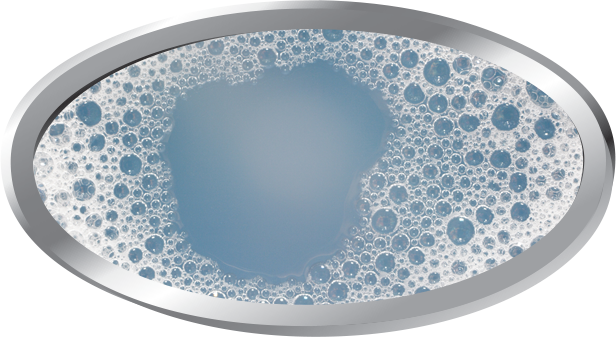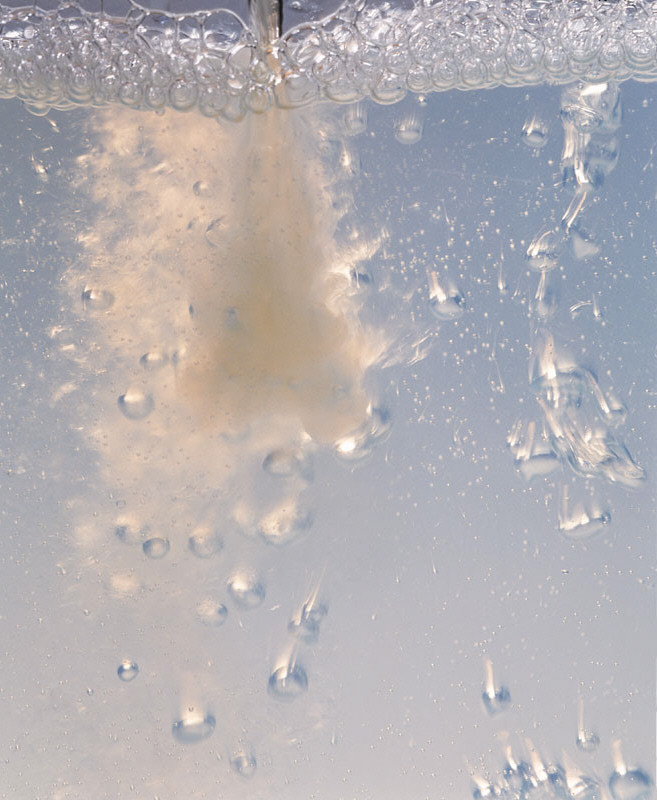Why Defoamers Are Essential in Water Treatment and Waste Management
The Function of Defoamers in Enhancing Product Top Quality and Performance
Defoamers serve as important additives that reduce this concern, ensuring smoother production process while boosting the practical and aesthetic features of the last products. The selection of the suitable defoamer can be essential to accomplishing optimal outcomes, elevating important concerns about formula compatibility and performance metrics that warrant additional expedition.
Recognizing Defoamers
Comprehending the duty of defoamers is essential for preserving item quality across different industries. Defoamers are chemical additives made to decrease and prevent the development of foam in liquid systems, which can negatively influence processes such as mixing, filling, and surface area tension. Foaming can cause ineffectiveness, product issues, and compromised aesthetic allure, making defoamers a critical component in producing operations.
In industrial applications, defoamers help to boost product uniformity and stability. The reliable usage of defoamers not only guarantees smoother production processes however likewise adds to remarkable product performance.
Furthermore, the option and solution of a defoamer need to line up with particular application demands, such as compatibility with other active ingredients, efficiency under varying temperature and pH conditions, and possible regulative constraints. Inevitably, understanding defoamers' features and their importance in numerous solutions is vital for maximizing manufacturing and guaranteeing the best final product.
Sorts Of Defoamers
Defoamers can be classified into numerous kinds based upon their composition and device of activity. The main kinds include silicone-based, non-silicone organic, and not natural defoamers.
Silicone-based defoamers are among one of the most efficient, primarily as a result of their capability to spread quickly on the liquid surface and disrupt foam formation. Their unique chemical structure permits remarkable stability, making them appropriate for high-temperature applications and atmospheres with differing pH degrees.
Non-silicone organic defoamers, typically composed of natural oils or fats, are valued for their biodegradability and reduced poisoning. These are typically used in food and beverage applications where safety and security and environmental influence are extremely important.
Inorganic defoamers, which include materials like talc or calcium carbonate, act by boosting the density of the fluid, therefore decreasing foam stability. They are typically used in commercial procedures where compatibility with other products is not a worry.
Each sort of defoamer has unique advantages and constraints, permitting customized solutions depending on the details lathering issues encountered in different applications. Understanding these distinctions is critical for optimizing performance and achieving wanted item quality.
Applications Across Industries
Various markets utilize defoamers to boost product quality and functional effectiveness. In the food and beverage industry, defoamers are important in processes such as brewing and dairy products manufacturing to avoid foam formation, which can bring about inefficiencies and item inconsistency. By managing foam, suppliers can make sure far better return and a more consistent product.
In the pharmaceutical sector, defoamers play an essential function in the formula of fluid medicines, where extreme foam can impede mixing and accurate application. Their usage aids preserve the honesty of the formulations and facilitates smoother production processes.
The paint and finishings sector also relies upon defoamers to improve the performance of items throughout application. By lessening foam, these ingredients ensure a smoother surface and improve the visual top qualities of the end product.

Advantages of Utilizing Defoamers
While the application of defoamers differs throughout markets, their advantages continually enhance product quality and procedure efficiency. One considerable benefit is the decrease of foam development throughout producing procedures, which can or else result in production hold-ups and incongruities in product top quality. By lessening foam, defoamers enable a smoother circulation of materials, assisting in more reliable procedures and decreasing the probability of tools malfunctions.
Additionally, making use of defoamers can boost the look and appearance of last products. In industries such as coatings, paints, and food processing, too much foam can endanger the aesthetic aesthetic appeals and general high quality, while the proper defoamer application guarantees a consistent finish and desirable qualities. Moreover, defoamers can contribute to cost savings by reducing waste throughout manufacturing and enhancing the usage of basic materials (defoamers).

Selecting the Right Defoamer
Choosing the best defoamer is essential for optimizing production processes and making sure item high quality. The selection of defoamer influences not just the effectiveness of foam control but additionally the total efficiency features of the final item. Variables to take into consideration consist of the kind of application, the chemistry of the solution, and the ecological problems under which the item will be used.
Various industries might need certain defoamer kinds, such as silicone-based, organic, or polymeric defoamers. Comprehending the compatibility of the defoamer with the primary components is vital to prevent negative reactions that could endanger item stability. Furthermore, the defoamer's performance in various temperature levels and pH degrees go to my site must be assessed to make certain go consistent efficiency.
Checking the defoamer in small-scale applications can give valuable insights right into its efficiency and suitability. Consideration of regulative compliance, especially in food, pharmaceuticals, and cosmetics, is vital in picking a defoamer. Inevitably, a complete analysis of these aspects will certainly result in the choice of a defoamer that not only controls foam successfully but additionally boosts the top quality and efficiency of the end product.
Conclusion

In final thought, defoamers are essential ingredients that dramatically boost product high quality and efficiency across numerous industries. By efficiently decreasing foam formation, these representatives not just improve operational efficiency but also add to the visual and practical stability of items. The tactical choice and application of defoamers cause set you back savings, enhanced source usage, and enhanced consumer complete satisfaction. Overall, the importance of defoamers in commercial processes can not be overemphasized, as they play an important duty in accomplishing top quality and consistent results.
Foaming can lead to inadequacies, item flaws, and jeopardized visual charm, making defoamers a critical component in manufacturing procedures.
